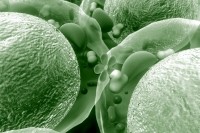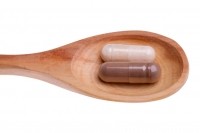Red wine compound can reset infertility hormones: Study

The condition provokes over-production of testosterone and has been found to affect about 6-8% of women of reproductive age. Other hormones such as dehydroepiandrosterone sulphate (DHEAS) are also produced in excess.
These elevated levels can contribute to irregular or absent menstrual periods, infertility or excess hair on the face and body. Those afflicted also have a higher risk of developing diabetes.
The team noted testosterone levels fell by 23.1% in women who took the resveratrol supplement.
In contrast, testosterone levels rose 2.9% in the placebo group. DHEAS dipped 22.2% in the resveratrol group, while DHEAS levels rose 10.5% in the placebo group.
"Our study is the first clinical trial to find resveratrol significantly lowers PCOS patients' levels of testosterone as well as DHEAS,” said the study's senior author, Dr Antoni Duleba of the University of California.
"This nutritional supplement can help moderate the hormone imbalance that is one of the central features of PCOS."
Selective actions

The study, conducted at Poznan University in Poland, enrolled 30 women with PCOS into a 3-month, randomised, double-blind, placebo-controlled trial.
Testosterone and other hormone levels were determined by blood samples taken at the beginning and end of the study. Oral glucose tolerance tests were also taken at the start and end of the study to assess diabetes risk factors.
“Several possible mechanisms may be considered, including a reduction of growth of the ca cells, and the improvement of insulin sensitivity with consequent reduction of insulin levels,” commented Duleba.
Studies have identified resveratrol as a promising nutrient for regulating excess hormone production in the ovaries although the actions appear to be selective. One study observed no effect on the production of progesterone — another hormone involved in the menstrual cycle, pregnancy, and embryo creation.
Resveratrol has shown the ability to interfere with cell growth and multiplication without any cytotoxic effects.
Efficacy in reducing the expression of vascular endothelial growth factor — a signal protein that stimulates blood vessel formation, has also been demonstrated.
"The findings suggest resveratrol can improve the body's ability to use insulin and potentially lower the risk of developing diabetes," Duleba added. "The supplement may be able to help reduce the risk of metabolic problems common in women with PCOS."
Resveratrol reservations?

While resveratrol in isolation exhibited efficacy in this study, the phytochemical has shown bioavailability issues, especially in supplement form.
While there are no problems with its absorption into plasma, it is very quickly metabolised resulting in low plasma levels and high sulphate and glucuronide content.
A range of theoretical solutions have been proposed to address this issue including consumption with various foods, micronised powders, combining it with additional phytochemicals, controlled release devices, and nanotechnological formulations.
Source: Journal Clinical Endocrinology Metabolism
Published online ahead of print, doi: 10.1210/jc.2016-1858
“Effects of Resveratrol on Polycystic Ovary Syndrome: A Double-blind, Randomized, Placebo-controlled Trial.”
Authors: Antoni Duleba et al.





